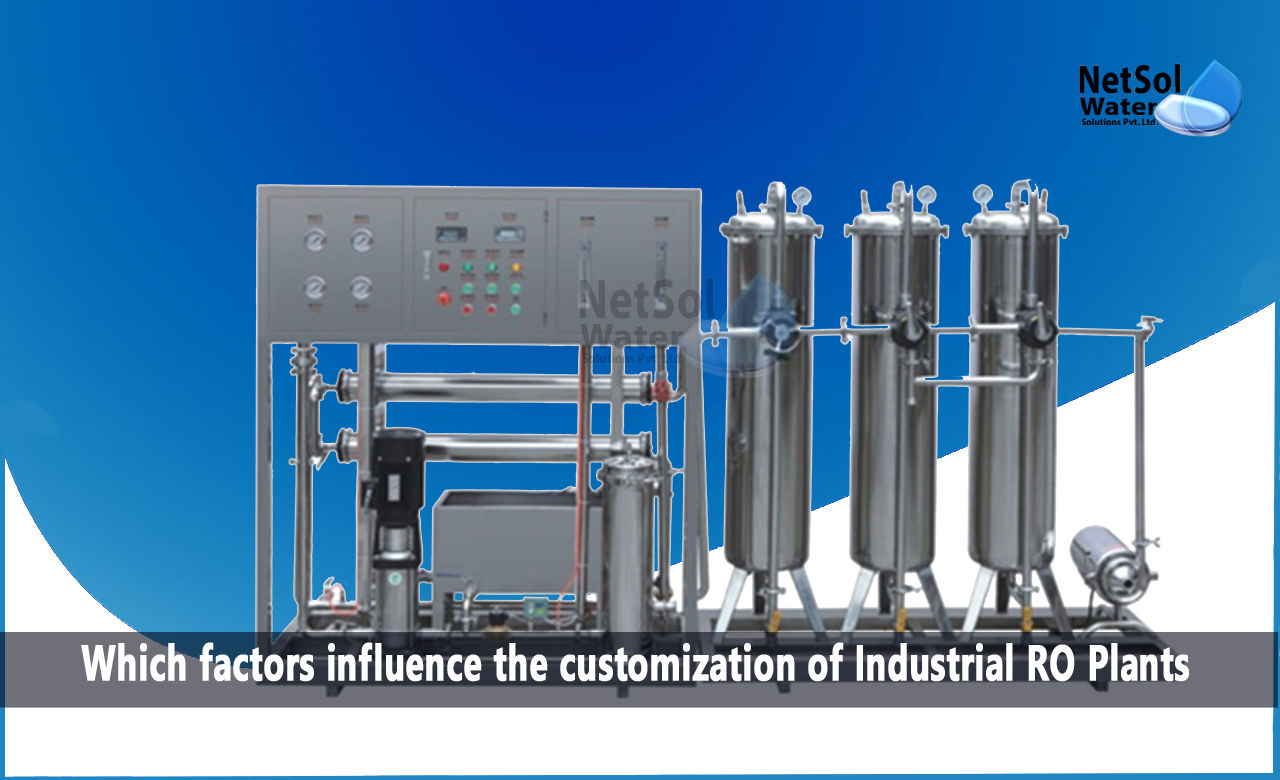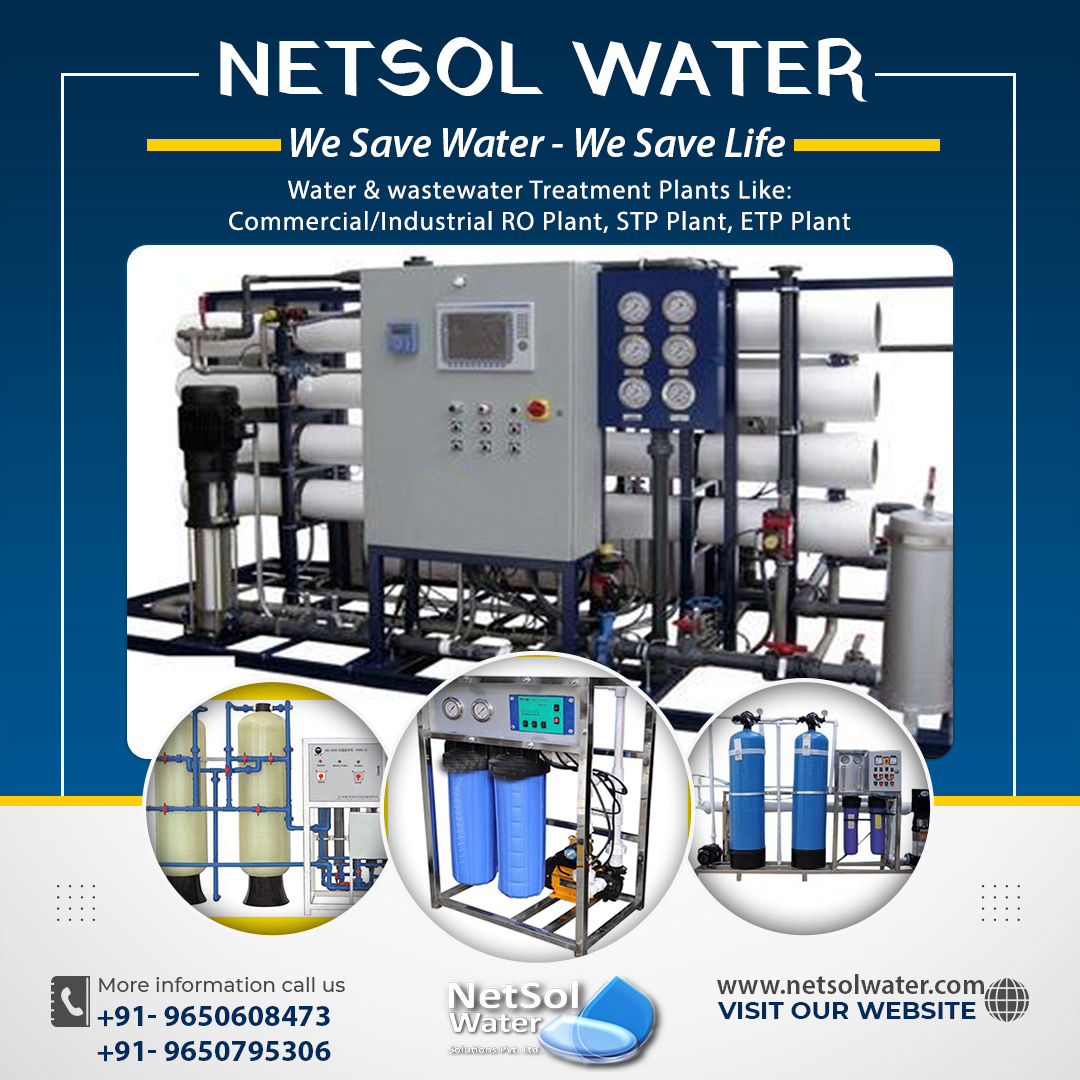One of the most economical ways to treat boiler feedwater, cooling tower makeup water, and industrial process water is through using Industrial RO Plants. Demineralized water can also be made using reverse osmosis, eliminating the need to handle and dispose of dangerous chemicals.
Which factors influence the customization of Industrial RO Plants?
Industrial RO Plants can now efficiently filter boiler feedwater, cooling tower makeup water, and process water at almost any needed flow, thanks to all the technical developments. While, customizing an industrial RO system, a number of things must be taken into account in order for it to run, as efficiently as possible.
Let’s understand the factors which influence the customization of Industrial RO Plants!
· Water Source
One of the biggest influences on the overall design of an industrial reverse osmosis system, including the number of filtering stages needed for pretreatment, is the source of the feedwater. In order to prevent pollutants from scaling or fouling the membranes in a reverse osmosis system, feedwater must normally be prepared.
Over the past ten years, cutting edge membrane technologies, and improvements in antiscalant chemistry, have significantly decreased the capital cost of pretreatment. Pretreatment procedures for water from a source with consistent composition and temperature, such a groundwater supply are often less intensive, than those for water from a seasonal or more complicated source, like surface water or wastewater.
· Temperature and Flow Rate
Water temperature has a significant impact on the flux rate, or the speed at which water moves across a membrane. With an Industrial RO Plant, warm water will pass through the membrane much more quickly than cold water. To ensure steady flow independent of water temperature, a variable frequency drive (VFD) is typically specified, on larger RO systems.
A reverse osmosis system's and pretreatment equipment's design, must take into account the factors governing water temperature and flow rate. The Industrial RO Plant’s size must be chosen based on the coolest possible feedwater temperature. Reverse osmosis output will fall below design specifications if applied, without taking real operating temperature into account, particularly in the winter.
· Pretreatment
Although, chlorine is useful for cleaning municipal water, it will damage reverse osmosis membranes. Reverse osmosis feedwater that has been pre-treated with a chlorine reduction agent, such as sodium bisulfite, is de-chlorinated using activated carbon filtering.
Depending on the water hardness level, feedwater should be prepared with a cation exchange water softener, or a chemical antiscalant to prevent scaling from calcium and magnesium carbonates.
· Microbiological Contaminants
Microbiological pollutants trapped in the membrane of a reverse osmosis system, can also cause fouling and a reduction in production capacity, albeit they are often less harmful than scaling. Due to the nature of Industrial RO Plant membranes' spiral wound construction, which only permits water to travel one way through the system, pretreatment is crucial.
A biocide may need to be added to feedwater to limit microbial growth, since accumulated pollutants cannot be removed from the membrane surface during backwashing.
· Silt Density Index
Large amounts of very small particles, or silt, in water might cause early membrane failure or require repeated membrane cleanings. The water may appear clear, but frequently the particles that could cause membrane fouling have an average diameter of less than 5 microns.
When constructing the pre-treatment for industrial reverse osmosis systems, feedwater should be assessed using a silt density index test (SDI) in the field, to avoid efficiency loss and downtime.
Feedwater with high silt concentrations may need to be treated with a flocculant before multimodal filtering. However, as many of these substances will permanently foul the membranes, caution must be taken in choosing the flocculent and determining the proper dosage.
Conclusion
Industrial Reverse osmosis systems designed specifically for different industrial applications, are the area of expertise of Netsol Water.
Our engineering team's knowledge has been put to use to create these specialized systems, which can address the particular water quality problems that arise in every industrial application.
With less wastewater, less energy used, higher flow rates, and contaminant rejection at competitive prices, our Industrial RO Plant is the most valuable for the industrial purposes. Call us at +91 9650608473 or email at enquiry@netsolwater.com for further information.




